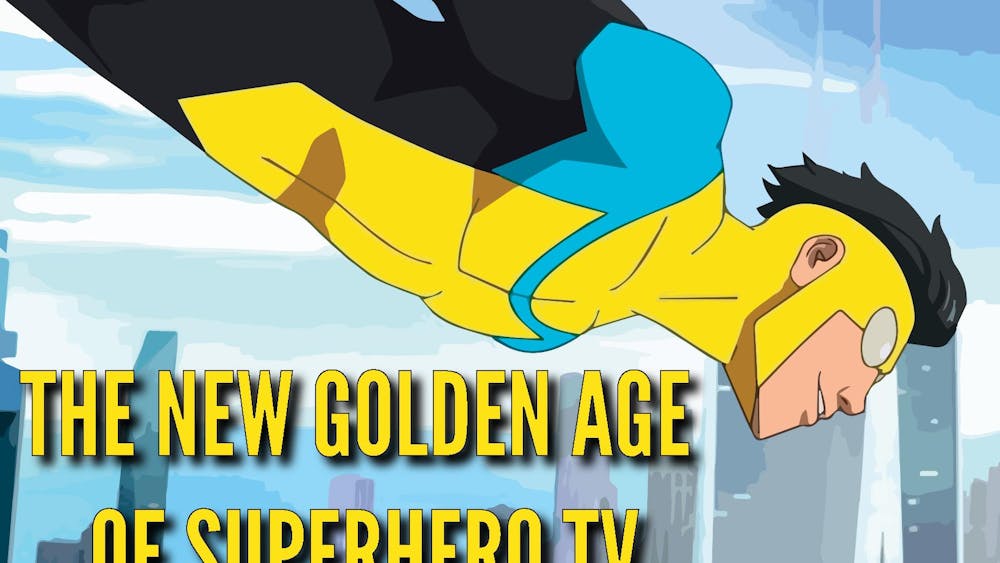
One of the most breathtakingly powerful voices in music, Björk has been releasing solo albums for more than 20 years now. The singer/songwriter/producer has, with each album, approached her sound and compositions in new ways. Throughout the years, she has managed to stay in touch with trends in both underground and popular music, often employing producers on the cutting edge of the industry. So when news broke that The Haxan Cloak and Arca, two such producers, would be working with Björk on her new record “Vulnicura,” it appeared that Bjork was right on track to release another boundary-pushing record.
“Vulnicura,” however, is no such album. A massive throwback to the gorgeous romantic ballads of “Homogenic” and “Vespertine,” Björk’s latest record is not so much one of experimentation as much as one of expression. At the core of the songs’ narratives is Björk’s painful separation from longtime partner Matthew Barney. The emotional material allows Björk a sort of return to form; while she seemed joyous and wonderstruck over the alien grooves of her previous two records, on “Vulnicura” she sings as a queen on a well-established musical throne.
The first track on the record, titled “Stonemilker,” opens with flowing string arrangements and a unabashedly gorgeous verse melody. One of Björk’s signature airy drumlines slides glacier-like in the background while the vocal melodies trade off with violins. Finally, the chorus arrives in full splendor – a simultaneously magnificent and gentle climax of emotion and pure musical beauty. There is nothing experimental about “Stonemilker” in Björk’s terms. Like so many of her greatest songs, “Stonemilker” employs Björk’s unusual vocal rhythms and song structures alongside accessible major chords and patient rhythms in order to craft a highly original yet highly enjoyable composition.
Throughout the record, Björk springs from emotion to emotion, jumping from anger to sadness to contempt to pride as she explores her response to changed relationship. On “Black Lake,” Björk mourns the loss of the “protection” and “shield” her partner granted her before scathingly accusing that his “heart is hollow.” Finally, she employs a striking image of simultaneous return and destruction: “I am a glowing shining rocket returning home/As I enter the atmosphere I burn off layer by layer.” “Family” is even more decimating, opening with the line, “Is there a place/where I can pay respects/For the death of my family?”
Yet amidst the pain is very familiar power in Björk’s music. Aside from the swelling strings and stuttering percussion that flood many of the record’s tracks, there are lyrical recognitions of growth and possibilities in the new era of her life. With a return to the melodic, orchestral compositions that form her greatest records, Björk’s music seems to reach heights that she has been avoiding for a while in favor of experimentation and artistic daring. Her latest two records received far less acclaim than the rest of her catalog, and in “Mouth Mantra,” she expresses a desire for the welcome change “Vulnicura” brings to her approach: “There is vocal sadness/I was separated/From what I can do/What I’m capable of.”
It’s clear that “Vulnicura” houses a wide range of emotions, some of which are rather rough and hard to swallow. However, by embracing the melodic and orchestral nature of her older output, Björk is able to frame them in an accessible and engaging way. Even as the pain echoes from her lyrics, the masterful melding of word and song allows the record to stand as another musical beauty alongside her best material. On “History of Touches,” she sings “I wake you up in the night/Feeling this is our last time together/Therefore sensing all the moments we’ve been together.” “Vulnicura” acts as such a sensation, a flash of past passions before the final moments. On her latest record, Björk captures this to perfection. Such an achievement, though indeed a powerful ending, will hopefully serve as a new beginning for an artist that still retains so much potential.













